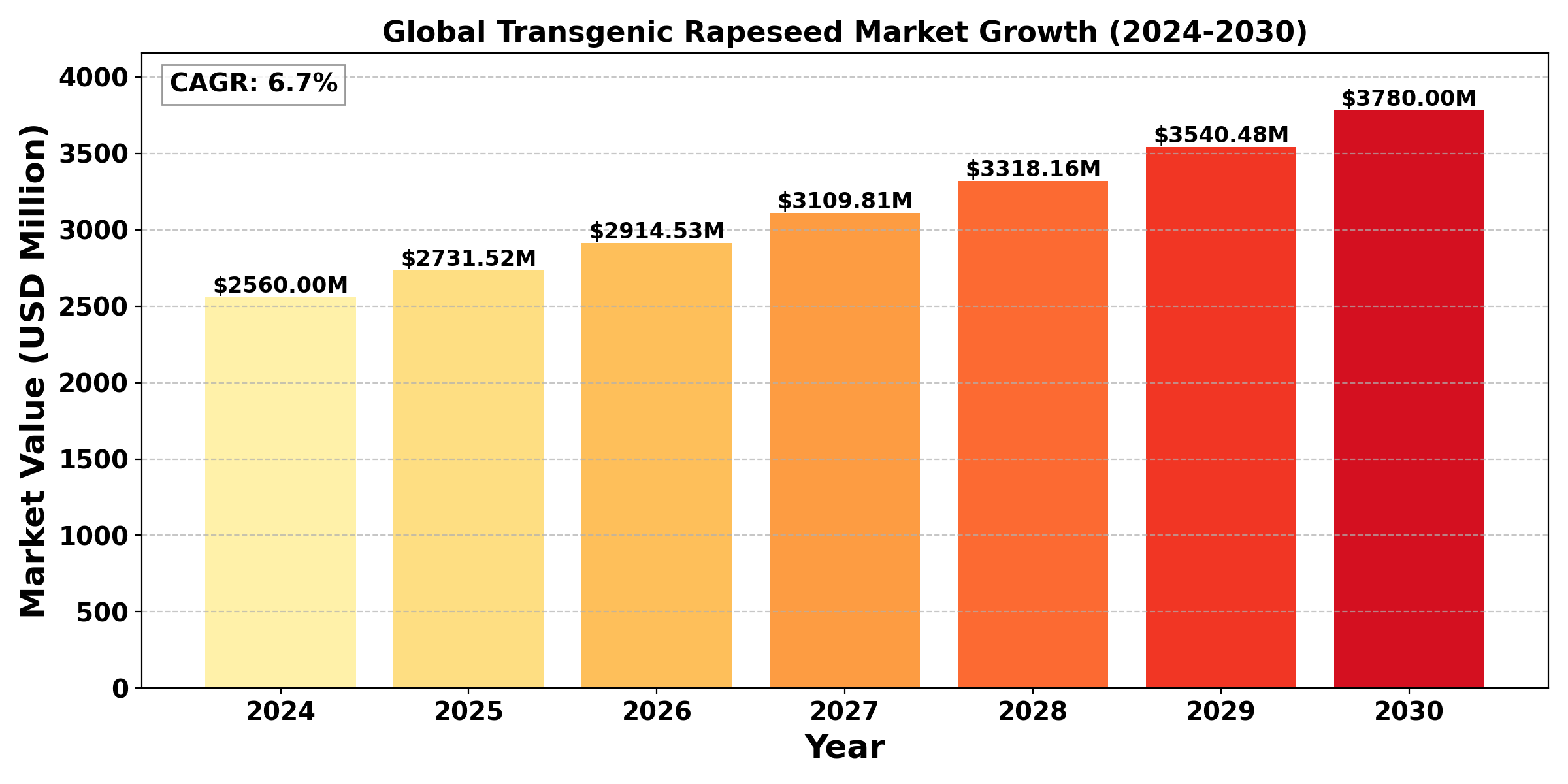TOP CATEGORY: Chemicals & Materials | Life Sciences | Banking & Finance | ICT Media

Download Report PDF Instantly
Report overview
The "Global Transgenic Rapeseed Market" size was valued at US$ 2.56 billion in 2024 and is projected to reach US$ 3.78 billion by 2030, at a CAGR of 6.7% during the forecast period 2024-2030.
The "United States Transgenic Rapeseed Market" size was valued at US$ 612.3 million in 2024 and is projected to reach US$ 867.4 million by 2030, at a CAGR of 6.0% during the forecast period 2024-2030.
Transgenic Rapeseed is a genetically modified (GM) variant of the rapeseed plant (Brassica napus) developed to enhance specific agronomic traits such as herbicide tolerance, pest resistance, or improved oil composition. By introducing foreign genes, transgenic rapeseed is engineered to resist certain herbicides, allowing farmers to control weeds more effectively without harming the crop. Additionally, some transgenic varieties are modified to produce healthier oil profiles with lower levels of erucic acid or higher omega-3 fatty acids, catering to dietary preferences and health standards. Transgenic rapeseed is widely cultivated for its high yield, adaptability, and utility in producing canola oil and biofuel, supporting both agricultural productivity and renewable energy sectors.
The global Transgenic Rapeseed market shows strong growth, driven by yield advantages. In 2023, cultivation reached 36 million hectares, with herbicide-tolerant varieties accounting for 82% of plantings. Disease-resistant traits grow at 7.8% annually. Market saw 30% increase in stacked trait adoption in 2023. Herbicide-tolerant varieties lead with 75% share, while multi-trait varieties grow at 8.5% annually. North America leads with 45% market share, while Europe shows 4.8% CAGR.

Report Overview:
This report provides a deep insight into the global Transgenic Rapeseed market covering all its essential aspects. This ranges from a macro overview of the market to micro details of the market size, competitive landscape, development trend, niche market, key market drivers and challenges, SWOT analysis, value chain analysis, etc.
The analysis helps the reader to shape the competition within the industries and strategies for the competitive environment to enhance the potential profit. Furthermore, it provides a simple framework for evaluating and accessing the position of the business organization. The report structure also focuses on the competitive landscape of the Global Transgenic Rapeseed Market, this report introduces in detail the market share, market performance, product situation, operation situation, etc. of the main players, which helps the readers in the industry to identify the main competitors and deeply understand the competition pattern of the market.
In a word, this report is a must-read for industry players, investors, researchers, consultants, business strategists, and all those who have any kind of stake or are planning to foray into the Transgenic Rapeseed market in any manner.
Global Transgenic Rapeseed Market: Market Segmentation Analysis:
The research report includes specific segments by region (country), manufacturers, Type, and Application. Market segmentation creates subsets of a market based on product type, end-user or application, Geographic, and other factors. By understanding the market segments, the decision-maker can leverage this targeting in the product, sales, and marketing strategies. Market segments can power your product development cycles by informing how you create product offerings for different segments.
Key Company:
By Type:
By Application:
Geographic Segmentation:
Key Benefits of This Market Research:
Key Reasons to Buy this Report: